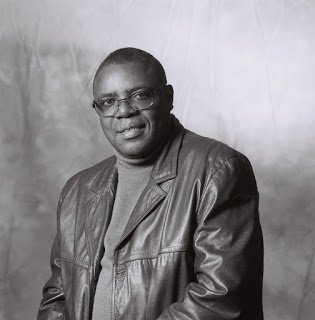Journalists and media students take part in a march as part of the 2016 World Press Freedom Day Commemorations in Masvingo
Nevanji Madanhire
The Zimbabwean media, in hundred years of existence, has been shaped by conflict and successive governments have used anti-press freedom laws to barricade themselves against any criticism deemed a threat to their parochial interests.
But this suppression of media freedom has never served the purpose it was set to achieve. Instead, it has resulted in conflict being more entrenched with disastrous consequences to the country.
The Zimbabwean government which came into power last November and calls itself “the new dispensation”, should reflect on the media laws enacted by the past administration, which it was part of, and see if they in fact, helped sustain its hegemony.
The laws did nothing to hold the ruling party together; neither did they stem “regime change” which came to pass acrimoniously in November.
A perfunctory look at Zimbabwe’s media history shows how conflict has shaped he media’s response to conflict into the outrage it is, much to the detriment of the role good journalism should play in society.
It is only when the media is freed from conflict that conflict can be resolved. When the media therefore calls for its right to operate freely, it is claiming and asserting its integral role in conflict resolution. A free media therefore, contrary to what governments think, is good for everyone including the ruling elite as it plays its part of being an honest and disinterested arbiter of conflict.
When the first newspapers were established in the late 1890s, there was no question about their mandate which was to help in building economic development of the new state called Southern Rhodesia.
This state had at its core the white settlers while the indigenous population was at the periphery and viewed as a threat.
By 1897 Fort Salisbury, the capital of the new settler colony had three newspapers namely, the Mashonaland Herald, the Zambesian Times and the Nugget. By that same time Salisbury had already had its first permanent Post Office building, an Anglican cathedral, a market hall, a stock exchange meeting point, the first trading association, a hotel (the Commercial) and a pharmacy (Strachan’s Lion Pharmacy).
Africans on the other hand had their first designated “location”, where “natives” lived. The indigenous population had already revolted twice in 1893 and 1897 driving the settlers into a laager, a word that evolved to mean all the laws enacted to ring-fence white privilege.
The Rhodesia Herald, The Sunday Mail and their siblings The Chronicle and The Sunday News, successors of the Mashonaland Herald, continued the tradition of safeguarding white interests until the end of colonialism in 1980.
The media therefore promoted a kind of parochialism that said Africans (natives) were a threat to their civilisation and their economic development; therefore, any developmental issue had to focus on white development.
The colonial media therefore promoted the white settler economy. Indeed, at independence in 1980 the Rhodesian economy was touted as one of the best in Africa but this disregarded the fact that the majority lived on its periphery, almost in abject poverty. It was this scenario that drove the country into a costly war that ended white supremacy.
But did the media’s role change at Independence inspite of the weaknesses exhibited in the Rhodesian model? The laager mentality did not end with colonialism in 1980. The new ruling class has outdone its colonial predecessors in controlling the media because of a siege mentality that has haunted its governmental history intractably steeped in perpetual conflict.
Zimbabwean media is deeply polarised and it seems it will take quite a while to destroy the polarisation. The media is not there to inform the public debate, but to support entrenched political positions hence it has often been labeled a sham.
Until the cordon of laws that has hindered press freedom and free expression is totally done away with, journalists will continue to have a siege mentality and polarisation will continue especially when media practitioners are overly aware the laws (in place) are applied selectively.
These laws are principally the Access to Information and Protection of Privacy Act (AIPPA) and the Public Order and Security Act (POSA). There has been some movement though with regard to a section of the Criminal Law (Codification & Reform) Act that criminalised journalists for defamation which has been deleted from the statutes.
In Madanhire and Another Versus the Attorney-General CCZ2/15, Section 96 of the Criminal Law (Codification and Reform) Act (Chapter 9:23) was declared unconstitutional as defined in Section 1 of the 6th Schedule to the Constitution of Zimbabwe in February 2016.
But the laws have basically remained in the country’s statutes without any attempt to align them with the 2013 Constitution even when AIPPA continues to criminalise journalists through Section 64 which makes “abuse of freedom of expression” a criminal offence.
Likewise, Section 80 of AIPPA should be revised or repealed altogether as it penalises “abuse of journalistic privilege” and limits foreign investment into media.
The continued statutory regulation of the media through laws such as AIPPA, has inherent problems. Those who argue for it say the fear of prosecution, which is its only known effect, prevents journalists from going astray. But the opposite seems to be true in Zimbabwe where the regulation is applied selectively. This has resulted in the emergence of a rogue element in journalism inclined towards tendentious reporting, hate speech and fake news.
In 2005 Francis B Nyamnjoh in a paper titled Racism, Ethnicity and the Media in Africa: Reflections inspired by studies of xenophobia in Cameroon and South Africa concluded:
“… the media have assumed a partisan, highly politicised, militant role in Africa. They have done so by dividing citizens into the righteous and the wicked, depending on their political party, ideological, regional, cultural or ethnic belonging.”
Zimbabwe has become the microcosm of everything that has gone wrong with the media in Africa, thanks to statutory regulation. The state, by its nature, is averse to the free exchange of ideas and opinion because that would be a threat to its parochial interest of power retention. The ZMC is the agent of this pervasion and should be abolished in any country that purports to uphold the basic tenets of democracy.
The only regulation the media deserves should be aimed at guaranteeing, promoting and protecting the fundamental right of freedom of expression enshrined in the supreme law of the land. This can only be done through self-regulation. This is based on the basic reality that the media understands its own operating environment better than the state.
Once the media self-regulates, it begins to work according to a codified set of journalism ethics that are difficult to infringe principally because of an inherent peer review mechanism among journalists themselves.
Self-regulation is based on codified ethics agreed to be accuracy, impartiality and fairness.
There are underlying principles without which any journalist practice becomes sham. These include providing reliable information for responsible public debate, holding officials accountable and informing decisions of the electorate.
But due to the polarisation of Zimbabwean media born of statutory regulation, the media has become a circus, which willy-nilly disregards the ethical guidelines of honesty, decency and, sometimes, the protection of sources.
Every day the media spews partial and unbalanced drivel in the name of news. Both the public and private media are guilty though the former is protected selectively by the state. But two wrongs do not make a right; they both should stick to professional ethics.
Impartiality means reporting should not support one political party, religion, people or ethnic group over another. Statutory regulation has tended to entrench partisanship instead of fighting it. The public media has unashamedly stood out for the ruling party, warts and all, while the private media has stood, often equally militantly, with the opposition.
Because of Zimbabwe’s long history of ethnic conflict, ethnicity has come to the fore in the media with both the public media on the one hand and the private media and media development organisations on the other, dominated by individuals from ethnic groups, pushing certain interests much to the detriment of fairness and balance.
Balance which should provide clear distinction between fact and opinion has largely been relegated to the sidelines.
When the African Union Election Observation Mission in 2013, together with regional instruments such as the SADC Principles and Guidelines Governing Democratic Elections and the African Charter on Democracy Elections and Governance, supported the call for the improvement of the media landscape in Zimbabwe, it did not do so to support a “regime change agenda”.
It did so as recognition of the media’s role in conflict resolution. Media development organisations and regional organisations such as the AU and SADC have recognised that “media can maintain its core professional values while also contributing to the resolution of conflict”.
The media can only do this unfettered by state control manifesting in the laager of laws such as those Zimbabwe has enacted since the turn of the millennium and has refused to align with the people-driven constitution of 2013 despite international outrage and the “new dispensation” promising a clean break from the past.
The writer is former editor of NewsDay and The Standard and writes widely on the state of the media in Zimbabwe. This article was commissioned by MISA Zimbabwe, as is part of its campaign on the realignment of media laws with the constitution of Zimbabwe with support from the European Union.







